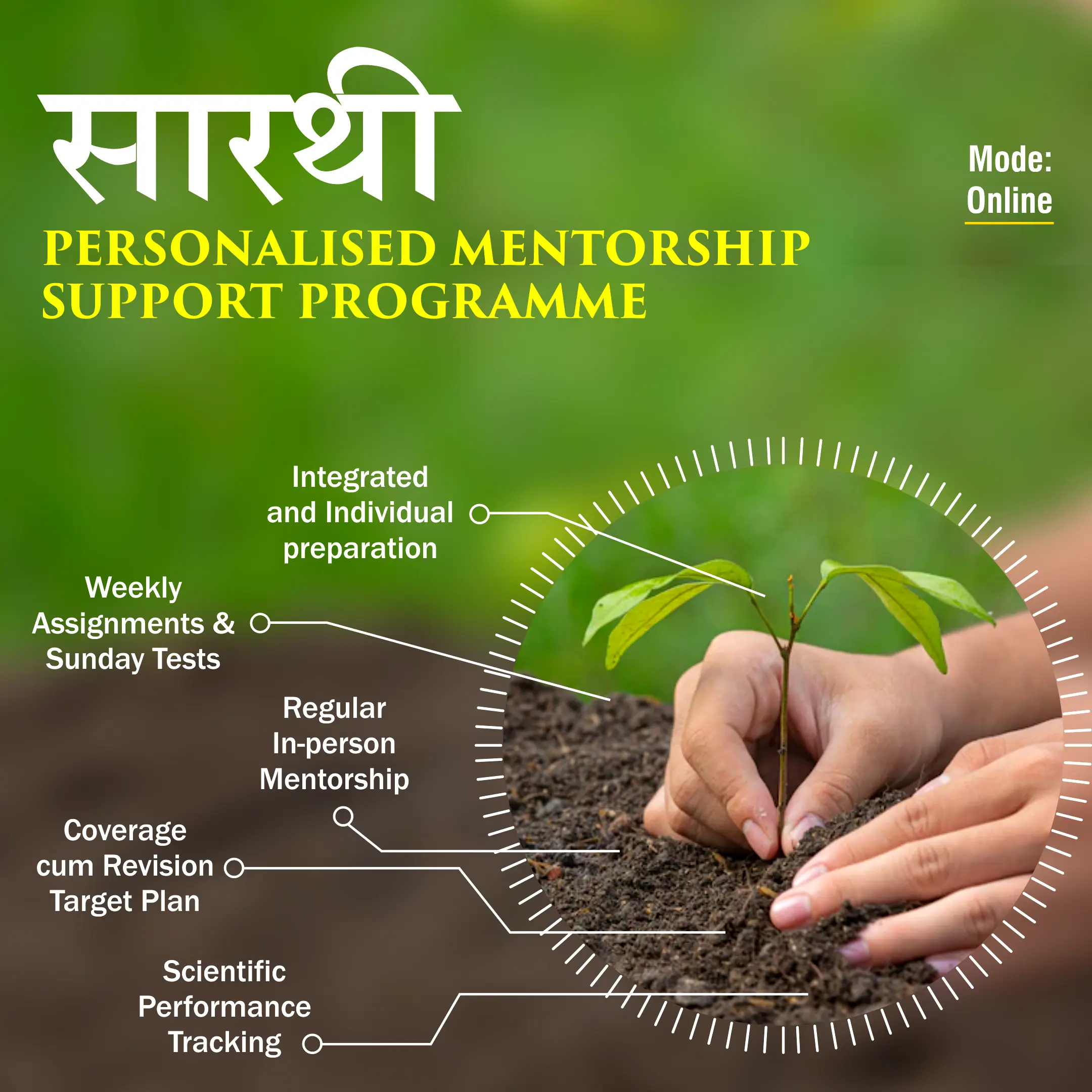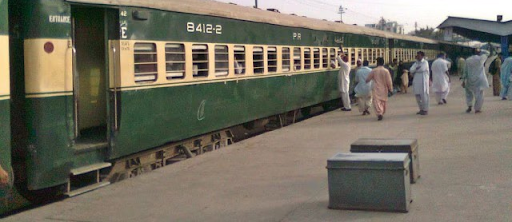.jpg)
Disclaimer: Copyright infringement not intended.
Context
- Several Foreign Ministers will participate in the Indian Ocean Rim Association (IORA) Council of Ministers meeting in Colombo.
Indian Ocean Rim Association (IORA)
About
- The Indian Ocean Rim Association (IORA), is an international organization consisting of 23 states bordering the Indian Ocean.
Former Names
- Indian Ocean Rim Initiative (IORI) and the Indian Ocean Rim Association for Regional Cooperation (IOR-ARC).
Establishment
- The organization was first established as the Indian Ocean Rim Initiative in Mauritius in March 1995 and formally launched on 6–7 March 1997.
Note: It was cemented during the presidential visit of Nelson Mandela to India in January 1995. Consequently, an Indian Ocean Rim Initiative was formed by South Africa and India.

Parent Treaty
- It was established by the conclusion of a multilateral treaty known as the Charter of the Indian Ocean Rim Association for Regional Cooperation.
Forming Members
- The Indian Ocean Rim Initiative was initially formed by South Africa and India.
- Mauritius and Australia were subsequently brought in.
- In March 1997, the IOR-ARC was formally launched, with seven additional countries as members: Indonesia, Sri Lanka, Malaysia, Yemen, Tanzania, Madagascar and Mozambique
Mandate
- The IORA is a regional forum, tripartite in nature, bringing together representatives of Government, Business, and Academia, to promote cooperation and closer interaction among them.
Principles
- It is based on the principles of strengthening Economic Cooperation, particularly on Trade Facilitation and Investment, Promotion as well and Social Development of the region.
Apex Body
- The apex body of the IOR-ARC is the Council of (Foreign) Ministers (COM).
Coordinating Secretariat
- The Coordinating Secretariat of IORA is located at Ebene, Mauritius.
Objectives
The objectives of IORA are as follows:
- To promote sustainable growth and balanced development of the region and member states
- To focus on those areas of economic cooperation that provide maximum opportunities for development, shared interest and mutual benefits
- To promote liberalization, remove impediments, and lower barriers towards a freer and enhanced flow of goods, services, investment, and technology within the Indian Ocean rim.
_1.png)
Projects Undertaken
- IORA members undertake projects for economic cooperation relating to
-Trade facilitation and liberalization,
-Promotion of foreign investment,
-Scientific and technological exchanges,
-Tourism,
-Movement of natural persons and service providers on a non-discriminatory basis; and
-The development of infrastructure and human resources, poverty alleviation, promotion of maritime transport and related matters, cooperation in the fields of fisheries trade, research and management, aquaculture, education and training, energy, it, health, protection of the environment, agriculture, disaster management.
Flagship Projects
- A special fund was created in 2004 for the implementation of special projects that would further IORA's commitment to its priority areas by narrowing the focus of member states' contributions.
Fisheries Support Unit (FSU)
- The aims of the FSU are to enhance cooperation among member states in regard to fisheries and to conduct research to manage and protect fish stocks.
- Critically, the FSU is exclusively dialogue-based: it does not make decisions or even provide advice on the management of fisheries or issues such as IUU fishing.
Regional Centre for Science and Technology Transfer (RCSTT)
- The IORA Regional Center for Science and Technology Transfer (IORA RCSTT) was formed in October 2008, and is based in Tehran, Iran.
- The center uses its resources to address issues ranging from disaster response to creating a gene banking database for medicinal plants.
Indian Ocean Dialogue (IOD)
- Originating in the 13th Council of Ministries meeting in 2013, the IOD acts as a stand-alone Track 1.5 discussion that brings together scholars and policymakers from member states to participate in discussions on the topics affecting the Indian Ocean Region and IORA member states.
The IORA Sustainable Development Program (ISDP)
- Introduced in 2014, the ISDP is dedicated to the least developed countries in an attempt to share best practices among member states in the Blue Economy, effectively bridging the gap between the rich and poor member states.
Membership
 Australia
Australia
 Bangladesh
Bangladesh
 Comoros
Comoros
 France
France
 India
India
 Indonesia
Indonesia
 Iran
Iran
 Kenya
Kenya
 Madagascar
Madagascar
 Malaysia
Malaysia
 Maldives
Maldives
 Mauritius
Mauritius
 Mozambique
Mozambique
 Oman
Oman
 Seychelles
Seychelles
 Singapore
Singapore
 Somalia
Somalia
 South Africa
South Africa
 Sri Lanka
Sri Lanka
 Tanzania
Tanzania
 Thailand
Thailand
 United Arab Emirates
United Arab Emirates
 Yemen
Yemen
Dialogue Partners
- Countries with the status of dialogue partners are:
 China
China
 Egypt
Egypt
 Germany
Germany
 Italy
Italy
 Japan
Japan
 Saudi Arabia
Saudi Arabia
 South Korea
South Korea
 Russia
Russia
 Turkey
Turkey
 United Kingdom
United Kingdom
 United States
United States
_2.jpg)
Agencies and Observerships
Specialised Agencies of IORA
- The Fisheries Support Unit (FSU) – Oman (2003)
- The Regional Centre for Science and Transfer of Technology (RCSTT) – Iran (2008)
Observers to IORA
- Indian Ocean Research Group (IORG)
- Western Indian Ocean Marine Science Association (WIOMSA)
IORA Observers to
- UN Conference on Trade and Development (2014)
- UN General Assembly (2015)
- African Union (2015)
Successes of Iora
- 25 Years as the Apex international regional organisation of the Indian Ocean region.
- Charter and the consensus model has been successful in keeping the region together and engaged - bilateral issues and tensions have not been a divisive factor.
- Growth of Member States (7 to 23) and Dialogue Partners (10).
- High level political endorsement - Jakarta Concord developed with priority areas and cross cutting issues with 5-year Action Plans for implementation.
- Developed solid and focused institutional mechanisms (Functional Bodies) to pursue priorities and cross cutting issues.
- Secretariat financial and administration reforms & strengthening programmes (ongoing).
Geo-Strategic & Economic Importance of Indian Ocean Rim Association (IORA)
- It represents a third of the world’s population (2.6 billion people).
- 80 percent of the world’s seaborne oil trade passes through the Indian Ocean choke
- Strait of Hormuz (40%) linking to the Persian Gulf
- Strait of Malacca (35%) linking to the Pacific Ocean
- Bab-el-Mandeb Strait (8%) linking to the Mediterranean Sea.
- Heavy international maritime traffic that includes half of the world’s containerized cargo & one third of its bulk cargo.
- Produces goods and services worth over $1 trillion with intra IORA trade around $800bn.
- An estimated 40% of the world’s offshore oil production, and rich in heavy minerals, and offshore deposits with nodules containing nickel, cobalt, and iron, and massive sulfide deposits of manganese, copper, iron, zinc, silver, and gold present in sizeable quantities on the seabed.
- One-fifth of the global fish production, with capture fisheries amounted to 21.8 million tonnes representing 22% of world total capture production in 2018.
- The combined area is of IORA Member States, EEZ is estimated at around 28 million sq. km and poses significant challenges in fisheries monitoring.
Challenges
- IORA faces several obstacles that prevent it from growing into a highly successful and influential regional organization.
Diverse States, Diverse Objectives
- Economically and developmentally, IORA brings together some of the world's richest countries - the United Arab Emirates, Singapore, and Australia - with some of the poorest, such as Mozambique, and island nations with very low GDPs, such as Seychelles.
- This creates uneven benefits from participation in IORA projects and can lead to economic competition and resentment among member states.
Overlapping Regional Organizations
- IORA faces competition with other regional and international organizations for member states' attention and investments; in fact, 14 such bodies have IORA member states in their membership.
Geopolitical Disputes
- Interstate conflicts have greatly hindered the strengthening of IORA, most notably through India's intentional exclusion of Pakistan from IORA membership.
- Though the India-Pakistan dispute has generally been terrestrial, it has manifested itself in IORA, as noted above; in the maritime realm; and in other regional maritime organizations.
- In addition, recent Chinese involvement in the Indian Ocean Region, particularly through the Belt and Road Initiative, has further sparked Indian distrust of a key nation in the strengthening of IORA, in this case, a dialogue partner.

Future of IORA
- Raise the profile of IORA globally – still not well known globally
- 25th anniversary is an opportunity to raise profile
- Academic community needs to get more engaged and writing about IORA’s successes and challenges
- Need for greater high level political support for IORA as the pre-eminent organisation in the Indian Ocean Region (IOR)
- Leaders need to reference and profile IORA more at highest level
- More active and greater contributions needed from Dialogue Partners – performance has been uneven
- IORA needs to respond to global challenges and issues
- Indo-Pacific concept – vision being developed
- Climate Change – elevating the issue
- COVID-19 and future global health pandemics – new area
- Need for more people-centred and concrete development projects Vs workshops and seminars
- IORA Development Initiative being developed (Bangladesh)
- More focus on support for building the capacity of LDC s and SIDS
- Special Fund access & disbursement needs to be ramped up, esp. for LDCs and SIDS
- Role of the business community in IORA needs to be strengthened
- Need for greater financial resources mobilised for IORA, including for the strengthening of the Secretariat
- Increase in financial contributions to provide financial stability and predictability
- Strengthen staff capacity and skills
- More secondment/recruitment of country experts in priority areas & cross cutting issues to strengthen the IORA Secretariat substantively.
|
PRACTICE QUESTION
Q. Consider the following statements:
1.The Indian Ocean Rim Association (IORA), is an international organization consisting of 23 states bordering the Indian Ocean.
2.The Fisheries Support Unit (FSU) of IORA makes decisions and provides advice on the management of fisheries or issues such as Illegal, unreported, and unregulated (IUU) fishing.
3.The IORA Sustainable Development Program (ISDP) introduced in 2014 is dedicated to the least-developed countries in an attempt to share best practices among member states in the Blue Economy.
Which of the above statements is/are incorrect?
A) 1 and 3 only
B) 2 only
C) 3 only
D) All
Answer: B) 2 only
The Fisheries Support Unit (FSU) of IORA does not make decisions or even provides advice on the management of fisheries or issues such as Illegal, unreported, and unregulated (IUU) fishing.
PRACTICE QUESTION
Q. Delineate the geo-strategic and economic importance of the Indian Ocean Rim Association (IORA). What challenges does IORA face that prevent it from growing into a highly successful and influential regional organization? Suggest a suitable way forward.
|




.jpg)
.jpg)
_1.png)
 Kenya
Kenya Tanzania
Tanzania Yemen
Yemen Japan
Japan Turkey
Turkey_2.jpg)










